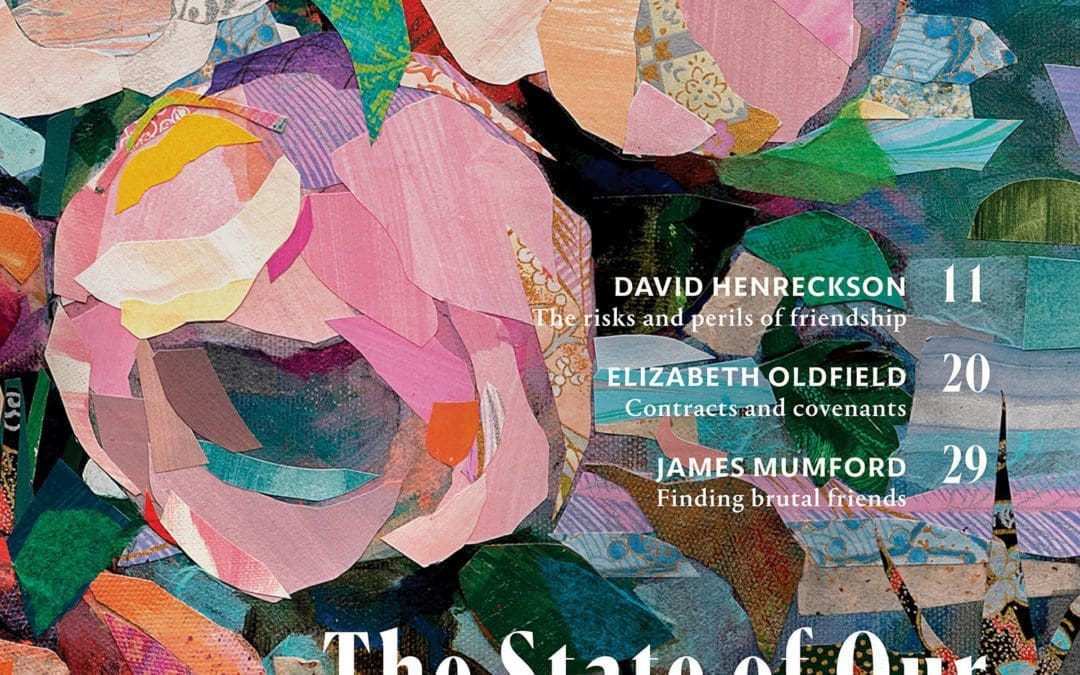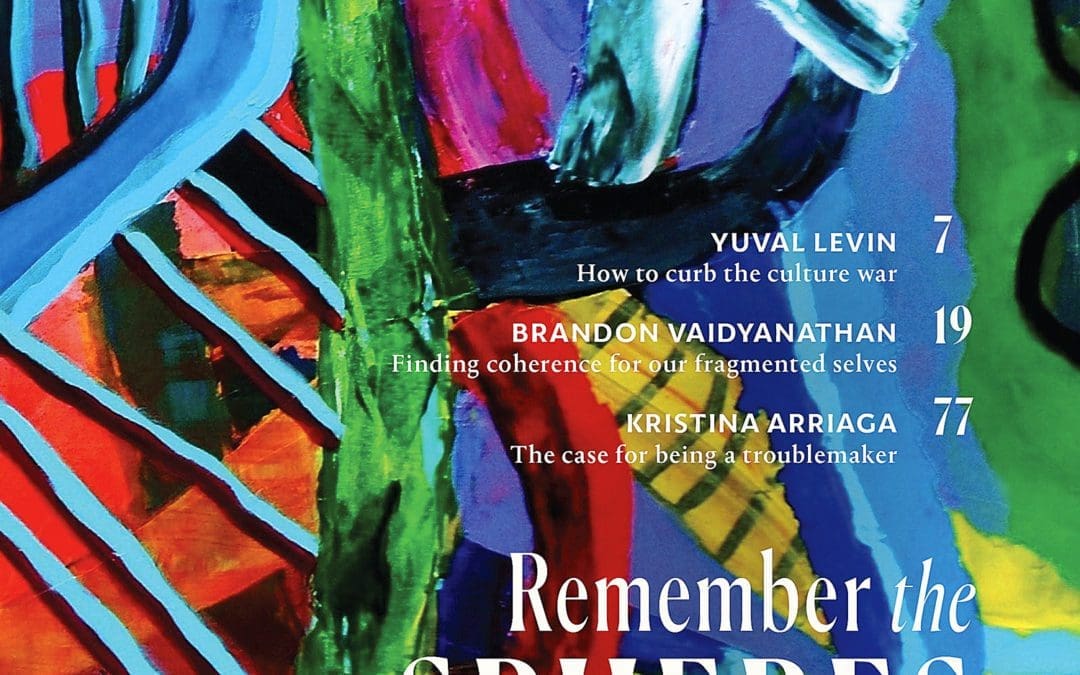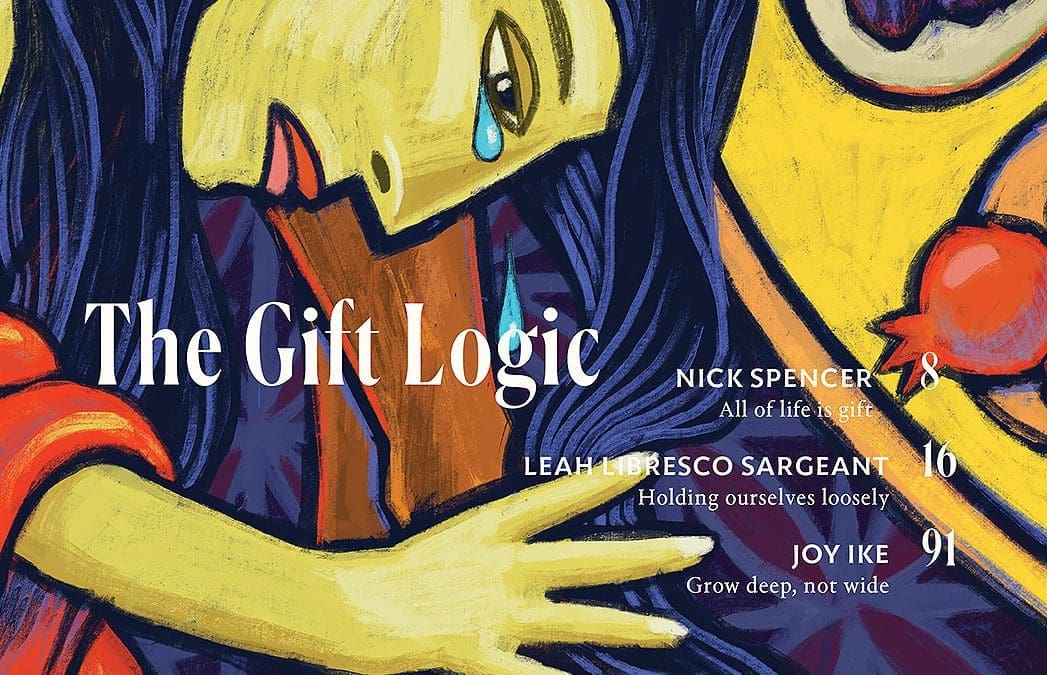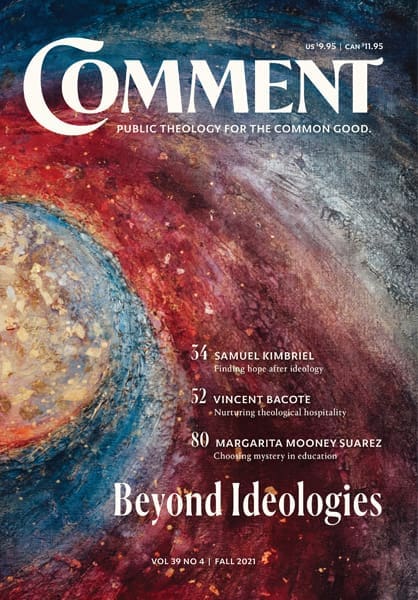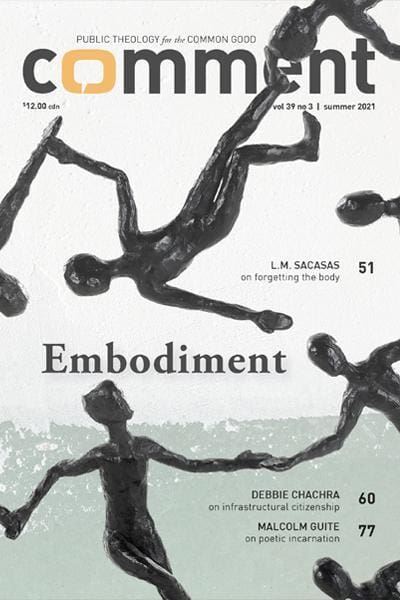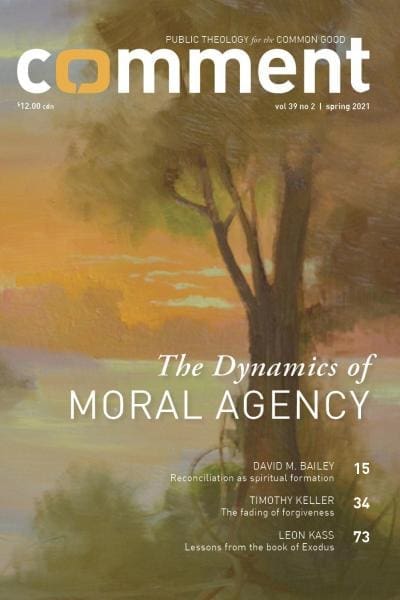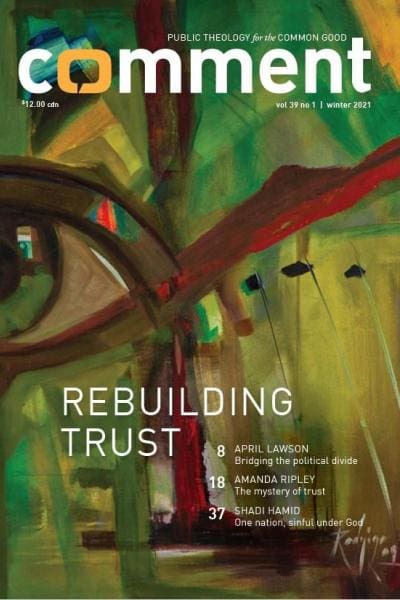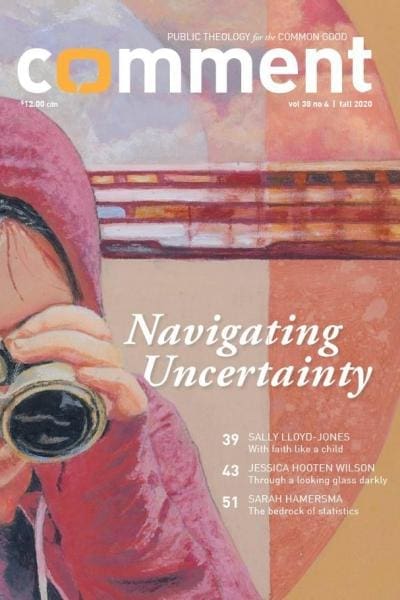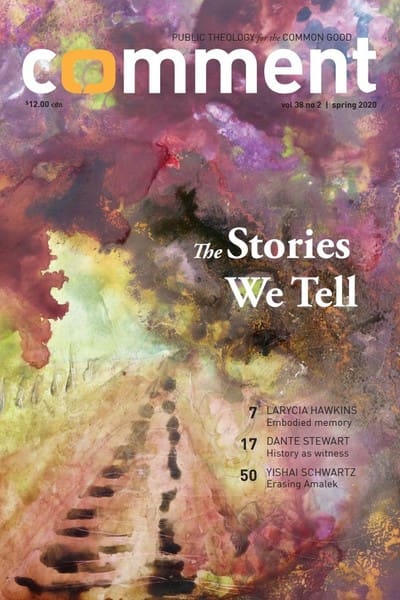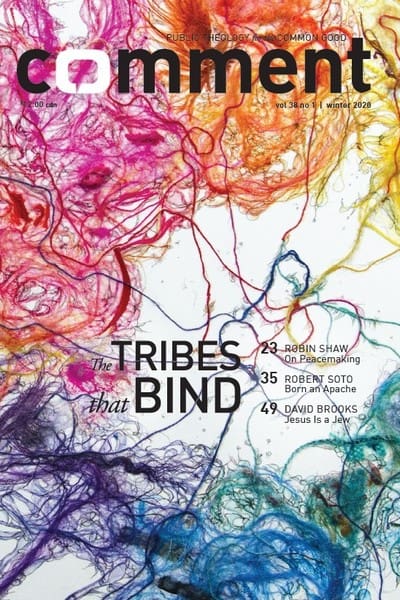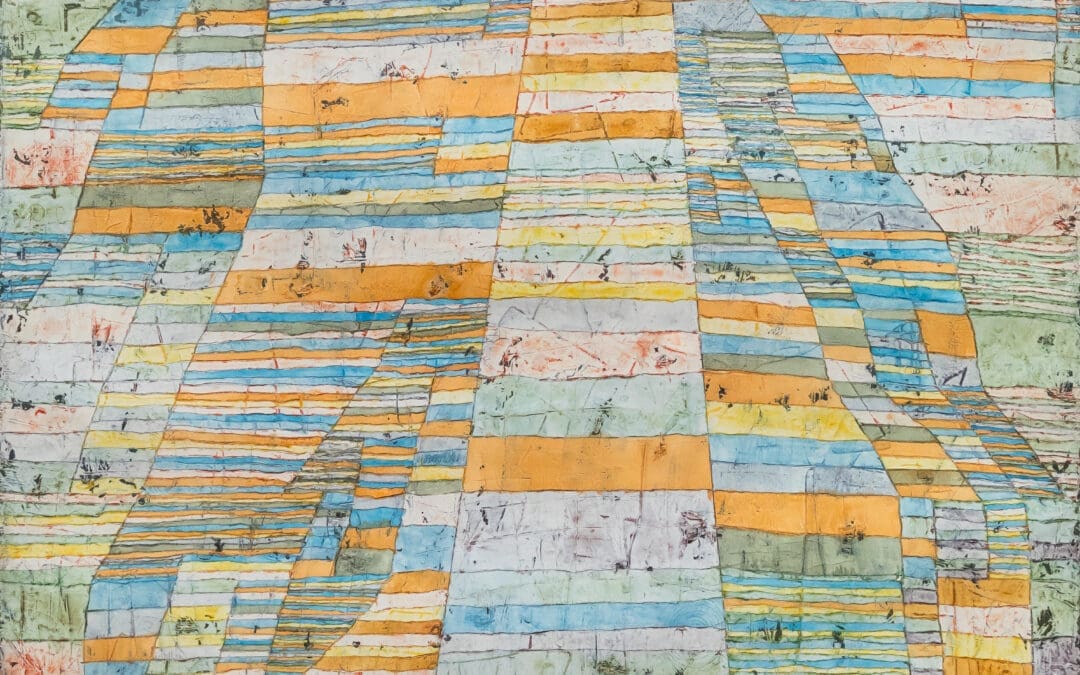Purchase a single copy of our summer 2022 issue. Upon first blush, friendship doesn’t seem like a particularly rich subject to tackle head-on. Like oxygen or water, it’s so foundational as to be assumed. But maybe that’s part of our problem. Something about the forces buffeting our lives today—unending busyness and a temptation to see relationships as instrumental; geographic mobility and a culture oriented first around work; digital displacement of presence with one another and now a pandemic that has separated us still further—all these and more seem to be rusting this crown of the good life. Fewer and fewer people testify to an experience of true friendship. The definition itself has lost solidity.
So Comment’s going to linger here. We want to know: What are the ingredients of friendship at its most life-giving, and how do you be a good friend? What is the art and skill of seeing another deeply, and allowing oneself to be seen in turn? Where do choice and covenantal commitment collide, and how do we sustain those friendships that may cost us our reputation, stretch our comfort, and themselves change on the tendrils of time?
